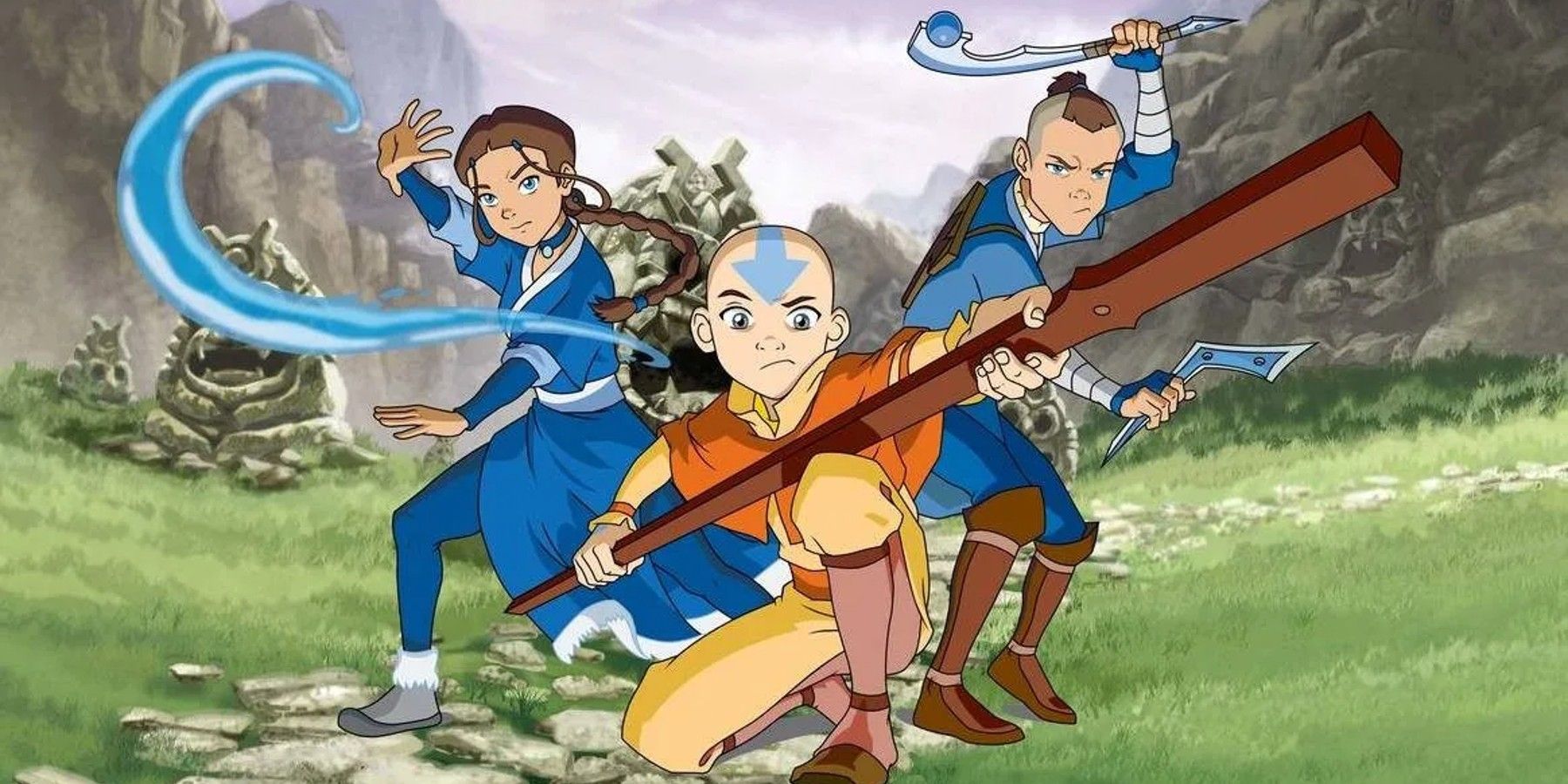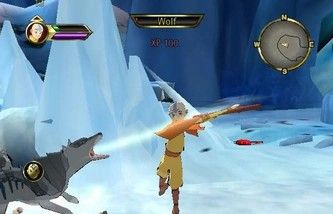Nickelodeon has produced countless quality shows in its decades of operation, a good portion of which are still relevant today in one way or another. Shows like SpongeBob SquarePants, Rugrats, and Teenage Mutant Ninja Turtles are just a handful of what Nickelodeon's produced over the years. But even in the face of this stiff competition, there's one show that's managed to transcend the usual realms of kid's TV, and become a Nickelodeon star for all ages: Avatar: The Last Airbender.
Debuting in 2005, Avatar: The Last Airbender thrusts audiences into an anime-inspired world, full of characters who are capable of manipulating one of four elements, such as Katara, Avatar's leading waterbender. While previous Nickelodeon shows had overarching plots and character development, none did it quite so elegantly as Avatar: The Last Airbender, and its high level of quality is what's kept it so popular today. But where there's popularity also comes spin-offs and adaptations, and Avatar: The Last Airbender has had plenty of those, some of which have been video games. Unfortunately though, despite having a premise that's naturally suited for the video game format, Avatar: The Last Airbender has had a disappointing history in the video game landscape.
The History of Avatar: The Last Airbender Video Games
While Avatar: The Last Airbender has had many Flash browser games over the years, a now-defunct PC MMO called Avatar: Legends of the Arena, and even a handful of solid tabletop games, the series has only had a few fully-fledged console titles. The first of these was a 2006 title simply called Avatar: The Last Airbender. Set between Book One and Two, this title sees the player control either Aang, Sokka, Katara, or Haru in a fairly simplistic beat-em-up action-RPG. While critics agreed that the story was a fun addition to the canon of the series, and that the gameplay was well-suited to younger players, Avatar: The Last Airbender was just too simplistic and repetitive to recommend.
Just a year later, a direct sequel, Avatar: The Last Airbender - The Burning Earth would release. Though the gameplay remained nearly identical to its predecessor, it did add a few more features, such as a multiplayer mode, the ability to bend all four elements and enter the Avatar State, and flying sections with Appa and Momo. Aside from the infamous easy to obtain 1000G Xbox Achievement, there was little other reason to pick up Avatar: The Last Airbender - The Burning Earth, with critics once again condemning the title's generic and repetitive gameplay.
Another year later, a third and final game in the series would release, this one titled Avatar: The Last Airbender - Into the Inferno. Based on Book Three, this title follows a similar gameplay style to its predecessors, though players can now play as Zuko. The Nintendo DS version of Into the Inferno is very different from its console counterparts, with a more cartoon-y art style, and a top-down perspective. Avatar: The Last Airbender - Into the Inferno reviewed even worse than its predecessors, with everything from the controls to the graphics to the plot being heavily criticized.
In 2007, a strategy game by the name of Avatar: The Last Airbender - Bobble Battles released. As the name implies, this title took a more chibi-inspired look, with the series' iconic characters being portrayed with big heads. This game sees players control groups of characters and pit them against enemy forces, similar to a real-time strategy game, albeit a very simplistic one. Another chibi game, Avatar: The Last Airbender - The Path of Zuko released in 2008, this time being a top-down puzzle game where players use Zuko's firebending powers to push blocks and defeat enemies.
In 2010, The Last Airbender released for Nintendo DS and Wii. Based on M. Night Shyamalan's despised live-action Avatar: The Last Airbender movie, The Last Airbender sees players take on the role of both Aang and Zuko as they journey through the events of the movie. Critics were just as harsh on the game as they were with the movie, giving it very low scores based on some basic level design and dull, run-of-the-mill gameplay. Today, Avatar is mostly known in the video game world through its recent crossover with Smite, but as new projects start to crop up, maybe the future will hold better video game successes for Avatar: The Last Airbender.


